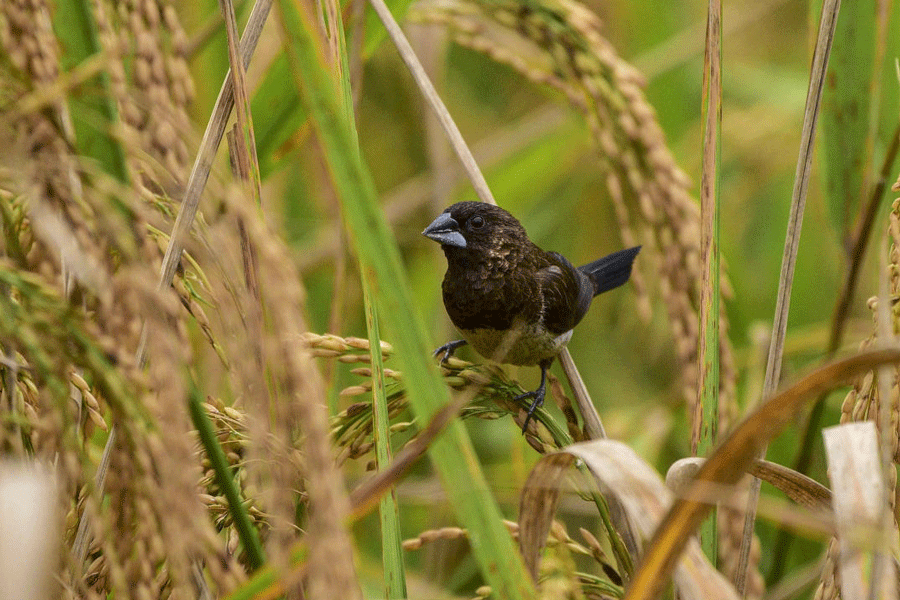The Ist Asian Ranger Forum (ARF), which saw participants from 20 countries, came to an end in the Assam capital on Friday, with a “Guwahati Declaration” urging the international community and governments across the world to strive for an “inclusive ranger workforce” crucial to the protection of global biodiversity at this critical juncture when climate change is emerging as a major threat.
The event got under way on December 5 (Tuesday) in Guwahati attracting 146 participants from 20 countries, including 35 women, representatives of local communities, and 89 active rangers who keep vigil over various biodiversity-rich protected areas.
The ARF’s objective is to ensure a “well-equipped workforce in the field to protect biodiversity because every ranger makes a difference through their valuable contribution towards protection of wildlife and biodiversity and the planet needs more rangers at this juncture”.
Forest rangers lead the force/guards on the ground.
The maiden edition was organised by the state environment and forest department, biodiversity conservation organisation Aaranyak, the International Ranger Federation (IRF), the Ranger Federation of Asia (RFA) and the Universal Ranger Support Alliance (URSA) in collaboration with other NGOs.
According to the Aaranyak, the ARF in its Guwahati Declaration has called for an “inclusive ranger force” and underlined “the pressing need” to improve access to equal opportunity ranger employment without prejudice, put in place anti-discrimination training, policies and monitoring systems, increase support structures, upskilling opportunities and pathways to promotion for under-represented groups in the ranger workforce.
The Guwahati Declaration stated: “Asia is a highly biodiverse region, yet it has lost half of its natural capital in the last 50 years alone. Rangers serve as critical biodiversity guardians, safeguarding Asia’s rich wildlife and ecosystems and enabling the achievement of the Global Biodiversity Framework’s; target of effectively conserving and managing 30 per cent of the planet’s land mass, oceans, coastal areas and inland waters by 2030 (30 by 30).”
“Despite their critical importance, rangers are often under-trained, under-recognised and under-equipped. In order to achieve 30 by 30, the world must rapidly scale up both the number of rangers and the management effectiveness of existing and future protected and conserved areas.”
The Declaration further said that given its size and ecological importance, Asia will play a pivotal role in determining whether this global target is met.
M.K. Yadava, PCCF and head of forest force (HoFF in Assam, hailing the forest rangers for their tireless efforts for conservation around the world, said: “The rangers, forest guards, foresters, we all are one. We are a common creed and stand united in the adversity of climate change. The impact of climate change is going to be largely visible on the wildlife and biggest on the communities on the fringes of the protected areas and forests."
Yadava added: “Wildlife has a definite pattern of migration in terms of change but extreme events are hard to anticipate and wildlife becomes the casualty of such extreme events. The impacts of climate change are evident in Assam as well. The most impacted people because of climate change are the poor people living in the fringes of the forest.”
Chris Galliers, president of the International Ranger Federation, announced the newly elected committee of Ranger Federation of Asia that has Bunty Tao of India as president and Manav Khadka of Nepal as vice-president, Hanera Aisha as secretary, Srinath Bhandara as South Asia representative and Peeranuch Dulkul Kappelle as South East Asia representative.
Galliers had said on the first day of the global event: “The world needs a well-equipped workforce in the field to protect biodiversity. Every ranger makes a difference through their valuable contribution towards protection of wildlife and biodiversity and the planet needs more rangers at this juncture.”
Assam forest minister Chandra Mohan Patowary had on Tuesday lauded the sacrifices and toiling of the forest field staff in protecting the precious wildlife and rich biodiversity in the state, adding dedicated forest officials with the support of local communities have scripted the rhino conservation success story in Assam as the state has achieved zero poaching in the past couple of years.











